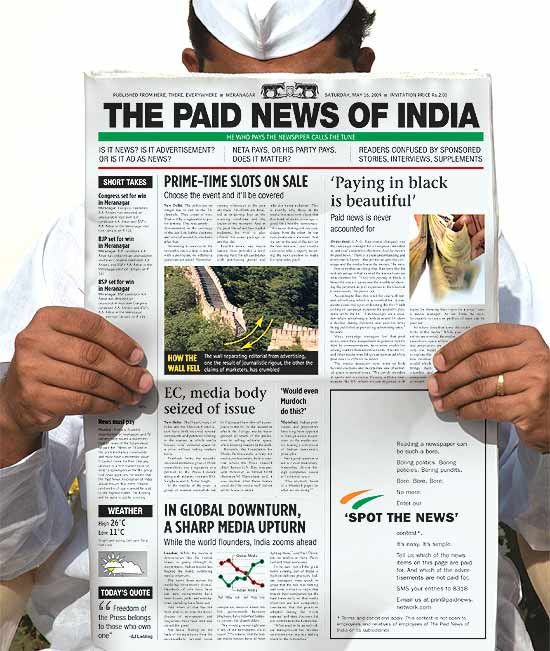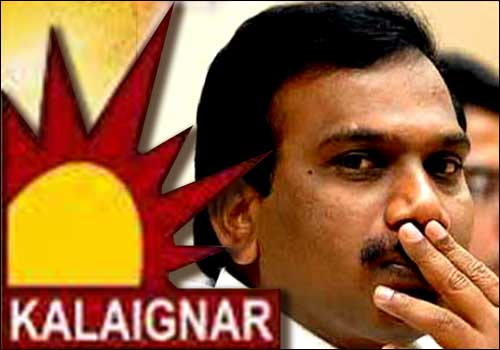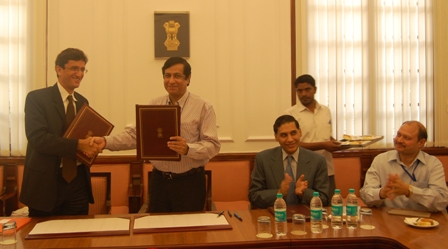
The Press Council of India (PCI) conducted an inquiry and produced a shocking 71- page article on the paid news but suppressed its findings, following the pressure from media-owners.
The concept of paying the press and the media to achieve personal or political objectives has dwarfed the power of the press and questioned the very myth of democracy that press vociferously believes to be adorned with. The PCI defines paid news as ‘Any news or writing appearing in the media- print or electronic for a price in cash or consideration.’
One comes across several advertisements of beaming faces, boasting about the ‘mass developments’ that they plan to carry out on being given the charge. Surprisingly, all these ‘news’ make their presence even more evident during the elections. Extensive coverage and interviews in the media concentrating on a single party or a leader find more space in a country which comes up with new findings and rare developments at every minute.
At some places, party leaders have been rumored to pay hefty-sums in order to cover the political campaigns. The first page of the newspaper, which is supposed to be devoted to the national news, sadly showcases the ‘height and personality’ of a white kurta clad man, smiling at people while begging for votes with all its fake credentials.
In some cases, one will find the same images of the men in the police files, languishing peacefully on reports of forgery and in cases, some most heinous crimes of murder.
The ‘privilege’ of paid news has been exercised by several high profile politicians to gain political mileage and nurture their high ambitions by taking the shortest possible ladder towards success. The 2009 election campaign of the former Chief Minister of Mumbai, Ashok Chavan has been marred with reports of lakhs of rupees being donated to the press to cover 300 articles on his ‘vision’ and ‘struggle’ to empower ‘Maharashtra’ to new heights.
History of paid news is plagued with several examples of politicians like Bhupinder Singh Hooda, (former Haryana Chief Minister), Hussain Daluni (Congress worker from Maharashtra) amongst many others. In one of the special cases, yogi Adityanath, a BJP MP from Gorakhpur claimed that he was forced to shell money for the political campaign in order to project his candidature to the people.
There is also a recent wave that justifies the paid news as legal. Politicians with ample 
What these articles and coverage do is project a wrong picture of the politicians in the minds of the people. The working class, which rarely finds time from its mundane activities, is abused with massive advertisements of politicians claiming to be the messiah for their problems. The innocent people are then fooled into believing the words of the press and the media and ends up giving power to crooked.
The media, surprisingly, which thrives on exposes and uncovering lies, maintains a stoic silence on such ‘preposterous claims.’ Though, it’s difficult to be surprised when a copy of newspaper which costs about Rs20 per copy is sold at a meager price of Rs.2.50 per copy.
The Election Commission of India though has taken some stringent measures to address these problems. It has prepared some rules and guidelines to help its officers in curbing the terror of media driven racket. It has also started a special division which looks into these matters. The commission has also laid down a rule which requires the politicians to disclose their assets, six months prior to the elections. Along with the consensus of the political parties, it has also suggested that there is a need to make changes in the Representation of Peoples Act by adding ‘Paid News’ as the corrupt practices. Steps like these have been responsible in reducing the nexus between the media and the politicians to some extent.
It’s high time the PCI takes some active steps towards maintaining the discipline of the press. It needs to take stricter actions against the press owners who indulge in such activities. The ECI, PCI and the media owners themselves have to co-ordinate together to address this grave issue.
Image: Outlook India Writer is a Student at SIMC



